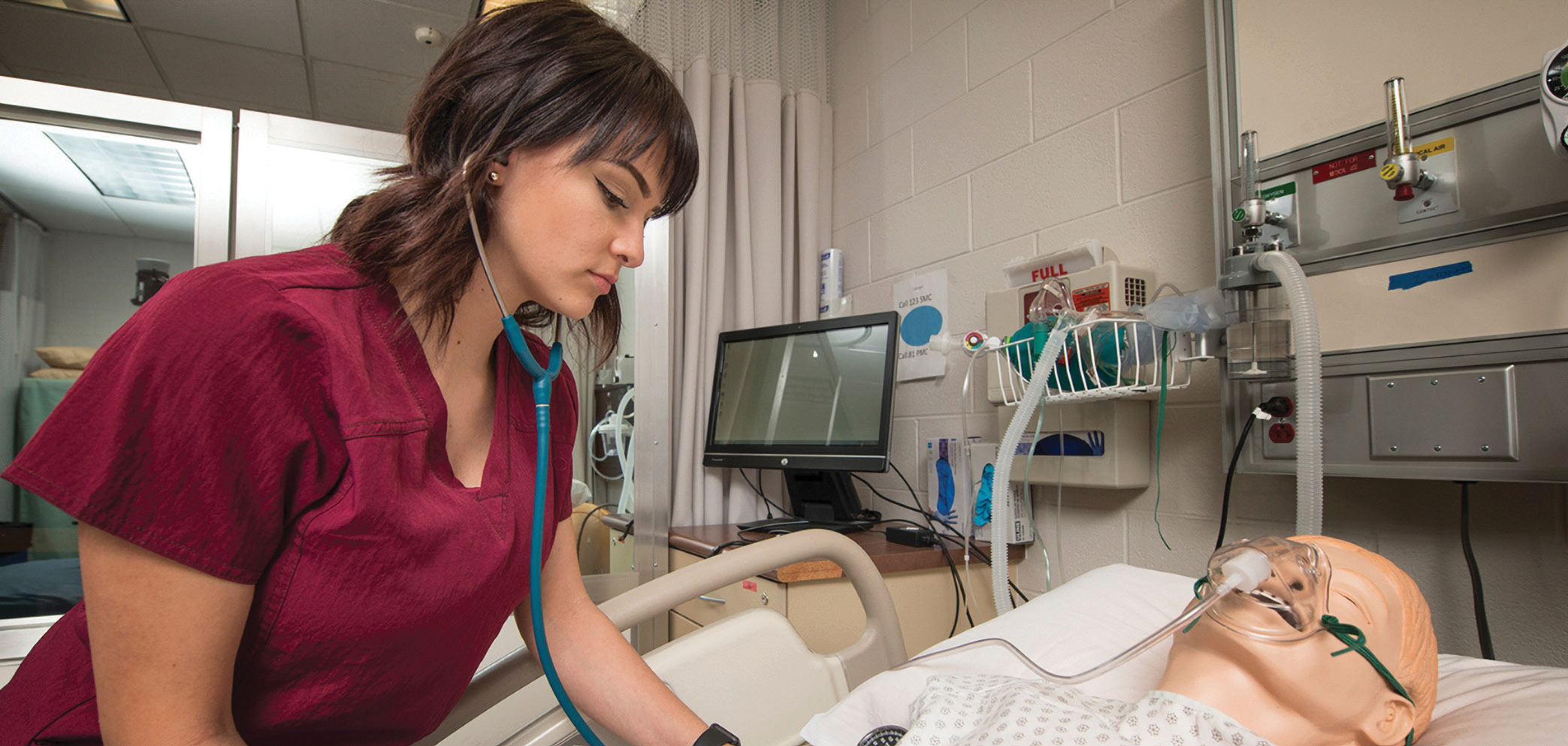What’s the price of a quality education?
Nowadays that question strikes fear in millions around the nation.
Heading into or graduating from a majority of four-year institutions leaves students concerned about the hefty amount of student loan debt they acquire to meet tuition costs. In November 2023, the U.S Department of Education reported that more than 9 million Americans failed to pay their first monthly payment since the start of the Biden Administration’s student loan forgiveness program.
To accomplish dreams associated with earning a degree, many find themselves moving into the workforce with a looming cloud of debt. This fact has steered students toward opting out of these competitive top universities and fulfilling the same credentials through a community college.
Employers are focused on securing bright, skilled talent quickly and efficiently. This had led to a rapid increase in companies looking to partner with local colleges and universities to create targeted programs for students or employees to earn certifications. For employees this often allows them to gain new skills while they work, and it allows students to fast track their way to a degree at a fraction of the cost and enter the workforce equipped to meet current needs.
As the U.S. continues to bounce back from workforce shortages, community colleges around the nation have programs and funding in place to fast-track students into their desired career field.
Colorado
Over the next decade, the state of Colorado can expect thousands of job openings within nursing, elementary and secondary education and construction. These sectors continuously face shortages in available workforce, so state officials have been diligent in creating a long-term solution.
In July 2023, Governor Jared Polis and the Colorado Community College System launched Career Advance Colorado, which follows in the footsteps of the state’s fruitful Care Forward Colorado program. Care Forward Colorado differs in that it solely focused on entry-level healthcare programs, resulting in 3,000 students completing a variety of health-care-related certificate programs.
“The Care Forward Colorado was for short term certificates that had to be less than two years,” says Arapahoe Community College Dean of Enrollment Michele Brown. “This program covers up to two years in length which is equivalent to the time it takes to earn an associate degree.”
The new $38.6 million Career Advance Colorado program, funded through House Bill 23-1246, targets training programs for construction, early childhood education, education, forestry, firefighting, law enforcement and nursing. All of the state’s 19 community and technical colleges are participating, each covering all or a number of the targeted programs, with a goal of preparing 20,000 students to enter the workforce.
Just outside of Denver in Littleton, Colorado, Arapahoe Community College welcomed 195 students in August 2023 to its nursing, early childhood education, education, construction management training programs. So far, the college has distributed $648,761.71 to cover all costs associated with each student.
“Denver is a very expensive place to live. We often find students that would be interested in going back to further their education, but they can’t afford to go back to school even with financial aid to cover their tuition,” says Brown. “This program is exciting because it helps cover things outside of tuition like book expenses, and in some cases living expenses and childcare.”
A data breakdown shows that the college’s nursing program gained the most traction with a total of 133 students. A total of 35 students are in early childhood education, encompassing assistant teacher, teacher and director certificates, while 15 students entered training for elementary education. The law enforcement academy certificate was sought out by 11 students and one student is pursuing the construction management fundamentals certificate.
“I am excited for the students who are interested in these programs and want to learn more are able to access education without the financial burden,” says Arapahoe Community College Enrollment Navigator Diana Lee. “They have that hands on experience with our skills lab and early childhood center while building that community.”
Virginia
When addressing challenges faced within workforce development a path toward a four-year education isn’t always the most lucrative.
In a world where one can pursue any career, there are often obstacles that prevent students from entering a perceived dream role.

Nursing has proved to be the most sought out training program for Arapahoe Community College in Colorado.
Photo courtesy of Arapahoe Community College
On the other hand, many students enter college in pursuit of a degree that does not fit into their lives in the way they had hoped. The National Center for Education Statistics has found that 80% of college students end up changing their major at least once and up to three times over the course of their college career. Time is money, making finding the ideal career route vital.
Central Virgina Community College (CVCC), located in Lynchburg, Viginia, knows the important role it plays in showcasing the benefits available in gaining an education through a community college, especially for K-12 students.
“You can earn a degree from a state four-year school and then make an average wage of $35,000 a year and have considerable student debt, or you can come here and make an average wage of six figures and have no student debt,” says Central Virginia Community College President Dr. John Capps.
According to data from the National Student Clearinghouse Research Center, community college enrollment saw a 0.5% (equivalent to 22,000 students) increase in 2022, following a steep decline associated with the COVID-19 pandemic. Enrollment numbers show a greater number of dually enrolled high school students and freshmen were behind this uptick.
In 2021, CVCC launched its first-ever Career and Technical Education (CTE) Academy for regional high school juniors and seniors to get a head start on earning credentials for in-demand jobs.
The CTE Academy offers dual enrollment classes in a number of industries ranging from criminal justice and cybersecurity to HVAC, health sciences, information systems technology and welding. The programs are created based on industry-focused fields and aim to help participants get ahead in developing critical thinking and soft skills they need to be equipped with upon entering the workforce.
Capps tells Site Selection that currently 1,013 students are enrolled and receiving hands-on training at the Academy.
“Most of the students are high school seniors right now,” says Capps. “They will graduate with an industry credential and an academic award. With this new approach, the students will come in as juniors and spend the whole day here.”
In addition, Framatome has invested $400 million to revitalize its Nuclear Training Academy at CVCC, which first opened at the college in 2004. The local nuclear energy services company introduced a new tech training facility to its center in 2023, in which the company will modernize its programs and advance its future workforce.
CVCC works to hire retiring Framatome employees to become adjunct professors, a plus for students gaining knowledgeable skills straight from industry-professionals. In addition, the practice gives students a chance to network and hear directly from those in their career field.
A wide array of curriculum available through community colleges such as CVCC, paired with lower tuition costs, allows students to gain an education without fear of racking up personal debt before beginning a career. As innovation becomes more aggressive, companies seek to partner directly with community colleges to train and retain talent to service their local locations. This has gained the attention of students.
“Some students think community college means a lesser education, but we know that nothing could be farther from the truth,” says Capps. “Here, you get a much more personalized brand of education.”

